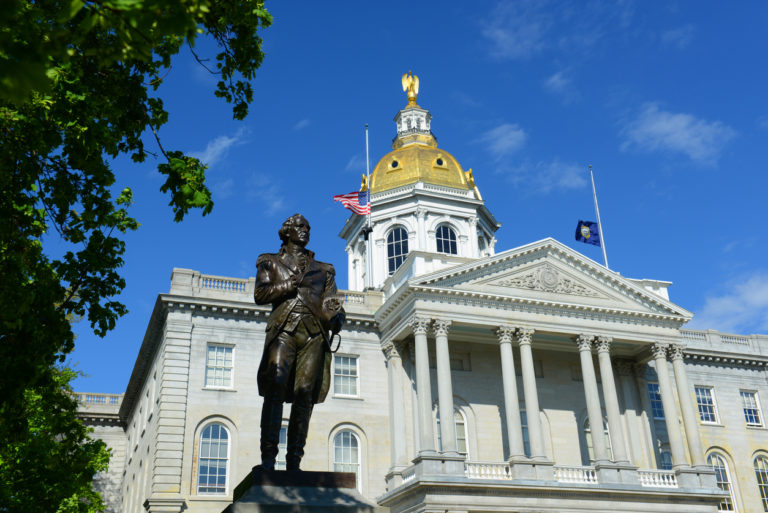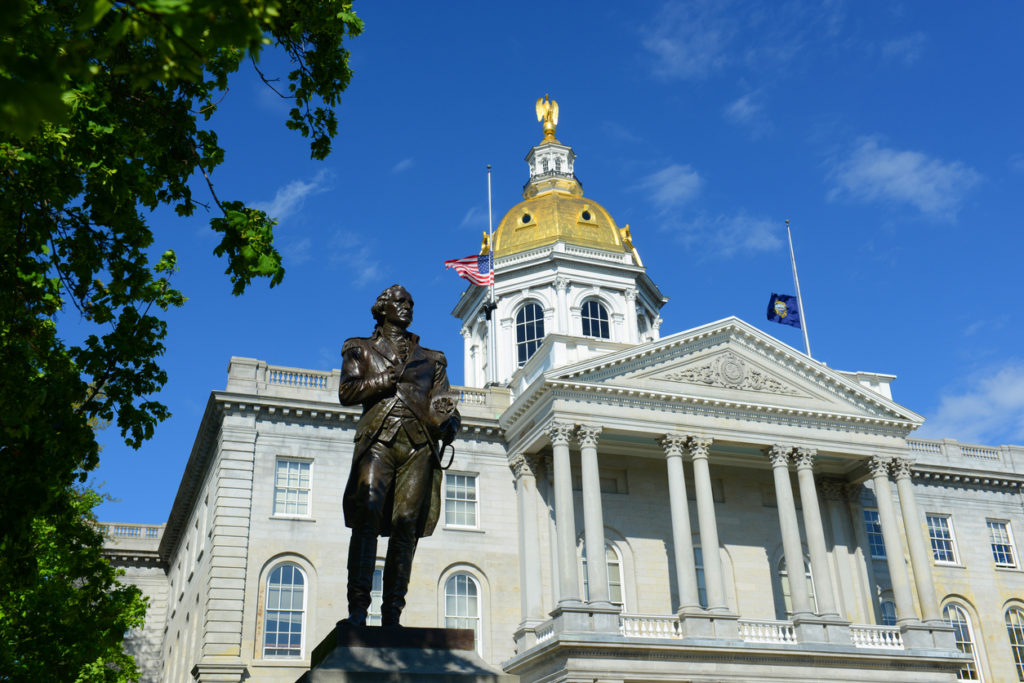On June 28, 2021, New Hampshire Governor Chris Sununu signed HB2, An Act Relative to State Fees, Funds, Revenues, and Expenditures. The Act provides tax relief for corporate and individual income taxpayers.
Interest & Dividends Tax
New Hampshire has long claimed its name among other income-tax-free states. But, because the state levies taxes on interest and dividends, that has not been 100% true historically. However, the Granite State is phasing out interest and dividends tax. For taxable periods ending before December 31, 2023, NH will levy Interest & Dividends Tax at a rate of 5%. For taxable periods ending on or after December 31, 2023, the rate decreases to 4%. The rate continues to decrease by 1% per year. By 2027, personal income in New Hampshire will truly be tax-free.
Business Profits Tax (BPT) & Business Enterprise Tax (BET)
Under HB2, the following changes are effective for taxable periods ending on or after December 31, 2022:
- the BET filing threshold increases from $200,000 to $250,000;
- the BET rate decreases from 0.675% to 0.55%;
- the BPT rate decreases from 7.9% to 7.6%; and
- the amount of the credit allowed against overpayments of both BET and BPT is limited to 500% of the total tax liability for the taxable period; the remainder of the overpayment will be refunded.
- For taxable periods ending on or after December 31, 2025, the amount of the credit allowed against overpayments of both BET and BPT is limited to 250% of the total tax liability for the taxable period; the remainder of the overpayment will be refunded.
- For taxable periods ending on or after December 31, 2027, the amount of the credit allowed against overpayments of both BET and BPT will be limited to 100% of the total tax liability for the taxable period; the remainder of the overpayment will be refunded.
Meals and Rooms Tax
The Act reduces the tax rate of the meals and rooms tax from 9% to 8.5% for taxable periods beginning on or after October 1, 2021. In addition, it establishes the meals and rooms municipal revenue fund, which, beginning on or after December 1, 2021, will be used to make annual revenue distributions to the unincorporated towns, unorganized places, towns, and cities.
Save Our Granite Stages Fund
Funding will be appropriated to the New Hampshire State Council on the Arts for fiscal year 2022 from the Save Our Granite Stages Fund. The council will use these funds to provide grants to both nonprofit and for-profit live venues that did not receive a federal grant through the Shuttered Venue Operators (SVO) program.
COVID-19 Micro Enterprise Relief Fund
Ten regional economic development corporations will be chosen at the commissioner’s discretion to receive funds from the COVID-19 Micro Enterprise Relief Fund to distribute grants to local or regional micro enterprises.
To qualify as a “micro enterprise” and be eligible to receive a grant, an entity must:
- employ 10 or fewer employees, including any proprietor;
- have been in business prior to March 13, 2020;
- Provide financial statements at the time of application that demonstrate a financial impact during the COVID-19 public health emergency, such as:
- temporary closure;
- reduction in workforce; or
- or loss of revenue of 50% or more in comparison to the same time period during the previous year.
Granite State Paid Family Leave Plan
HB2 amends the Granite State Paid Family Leave Plan, a program which aims to extend access to affordable family and medical leave insurance (FMLI) wage replacement benefits to more or the state’s employees. Individuals working for private employers who employ more than 50 employees and do not offer FMLI coverage will have the opportunity to purchase FMLI by way of a payroll deduction.
The employer will remit the FMLI premium payments to the Department of Employment Security. The Act establishes the FMLI Premium Stabilization Trust Fund to ensure the premiums charged to participants in the individual pool remain stable from year to year.
The Act also establishes a tax credit for sponsoring employers to use against the tax due in an amount equal to 50% of the premium paid for family and medical leave insurance coverage offered to employees.
Contact ARB
If you have any questions, contact me today. And visit our COVID-19 Financial Resource and Tax Center for additional information on related matters.
by Matthew Pore, CPA
Matt Pore is a tax principal at ARB and works extensively with closely-held businesses, private clients & family offices, and automotive dealerships. As a leader in the firm’s tax department, Matt provides sophisticated guidance on corporate structure, entity reorganizations, M&A transactions, wealth transfers and tax planning & compliance.






